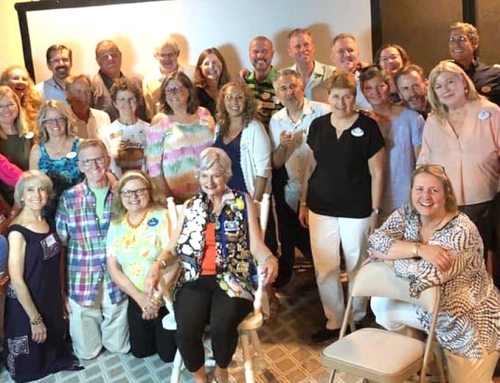 Guest post by ILS contributor, Sarah Collins
Guest post by ILS contributor, Sarah Collins
This past week, my family did what some people would have a tooth pulled to avoid.
We went to buy a car. Actually, two cars – both my husband and I were ready for our next vehicles.
Now, I actually don’t mind the car buying process. Yes, it’s long and you’re faced with spending more money than you care to think about, but if all goes well you’ll end up driving home a new car.
All went well for the first hour. My husband had picked out his vehicle the day before and I made up my mind quickly. In the second hour of our visit, we started the paperwork on my car and started finishing paperwork on my husband’s. It was Labor Day weekend, people were happy, and the kids were loving their first trip inside a car dealership. All was well.
Over the course of the next nine hours, we experienced a complete breakdown in the process. It took two hours for paperwork to print (I mused to myself, “by hand?”) Three hours to get to finance. Two hungry kids under ten were now looking at the popcorn machine and model sports car like yesterday’s news. It was a building full of people running thin on time and thinner on patience.
So, what happened? Somewhere along the track, the engine stalled. It wasn’t dealt with and so it just kept stalling. Eventually, I think they just let it coast. Think about the busiest day at the hospital – the one where you’re short staffed and out of beds. When the engine stalls and you’re already a few laps behind, what might otherwise be a pit stop becomes a blow-out.
So, what could the dealership have done differently? What can you do when the hospital is crazy busy and the only thing you can do is run from one fire to the next?
What Do You Do When The Engine Keeps Stalling?
Turns out, I think we forget the importance of what we do after the issue arises. Crazy days are going to happen – but what about after you go home at the end of the exhausting twelve-hour shift, fall into a deep sleep, and then head back again the next day. Do you just refuel and move on?
Our long and winding day at the car dealership made me think about communication. I imagined pit crews: the way they make every second count. How they function as one entity, not unlike a school of fish simultaneously turning on a dime.
That type of instinctual syncing doesn’t just happen – it is built upon hours of communication and preparedness. I wonder if the dealership even discussed what happened on Saturday in their Monday morning meeting.
Your Engine Is Your Team
From our experience with dozens of healthcare groups here at ILS, we have learned that talking about a series of engine stalls during a morning huddle, and then putting practices in place to handle them better next time, takes teams miles beyond the rest.
Away from the stress of the event, people can pinpoint the potholes and figure out how to fill them. They can write down best practices that worked and keep them as lifelines for the next time. And, maybe most importantly, they can take a moment to recognize the crew for keeping them moving through for the benefit of the patients.
Healthcare is one of, if not the most, challenging field. Your engine is the team you trust to carry you through every day. When it stalls, find the problem and fix it before it happens again. As my dad used to say when I first started driving, “maintenance is key. You’ll get out of the car what you put into it.”






Leave A Comment